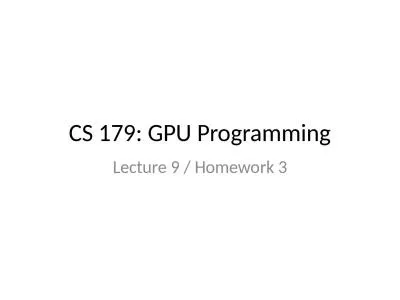PPT-CS 179: GPU Programming Lecture 7 Week 3 Goals: Advanced GPU-
Author : briana-ranney | Published Date : 2019-11-03
CS 179 GPU Programming Lecture 7 Week 3 Goals Advanced GPU accelerable algorithms CUDA libraries and tools This Lecture GPU accelerable algorithms Reduction Prefix
Presentation Embed Code
Download Presentation
Download Presentation The PPT/PDF document "CS 179: GPU Programming Lecture 7 Week ..." is the property of its rightful owner. Permission is granted to download and print the materials on this website for personal, non-commercial use only, and to display it on your personal computer provided you do not modify the materials and that you retain all copyright notices contained in the materials. By downloading content from our website, you accept the terms of this agreement.
CS 179: GPU Programming Lecture 7 Week 3 Goals: Advanced GPU-: Transcript
Download Rules Of Document
"CS 179: GPU Programming Lecture 7 Week 3 Goals: Advanced GPU-"The content belongs to its owner. You may download and print it for personal use, without modification, and keep all copyright notices. By downloading, you agree to these terms.
Related Documents

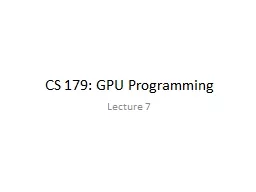
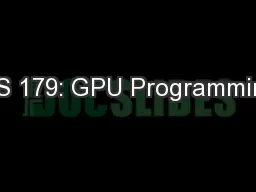

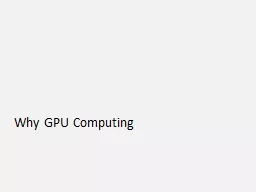
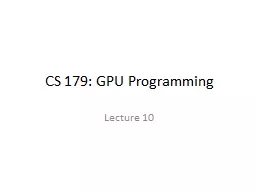
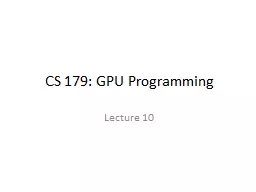
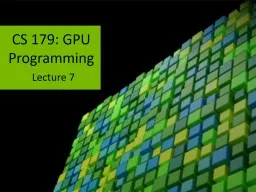


![[PDF]-Programming 3: Python Programming Professional Made Easy & C Programming Success](https://thumbs.docslides.com/980147/pdf-programming-3-python-programming-professional-made-easy-c-programming-success-in-a-day-c-programming-c-programming-c-programming-language-html-python-programming-python-java-php.jpg)
![[FREE]-Programming 16: Python Programming In A Day & C Programming Professional Made Easy](https://thumbs.docslides.com/980148/free-programming-16-python-programming-in-a-day-c-programming-professional-made-easy-c-programming-c-programming-c-programming-language-html-python-python-programming-coding-css-java-php.jpg)
